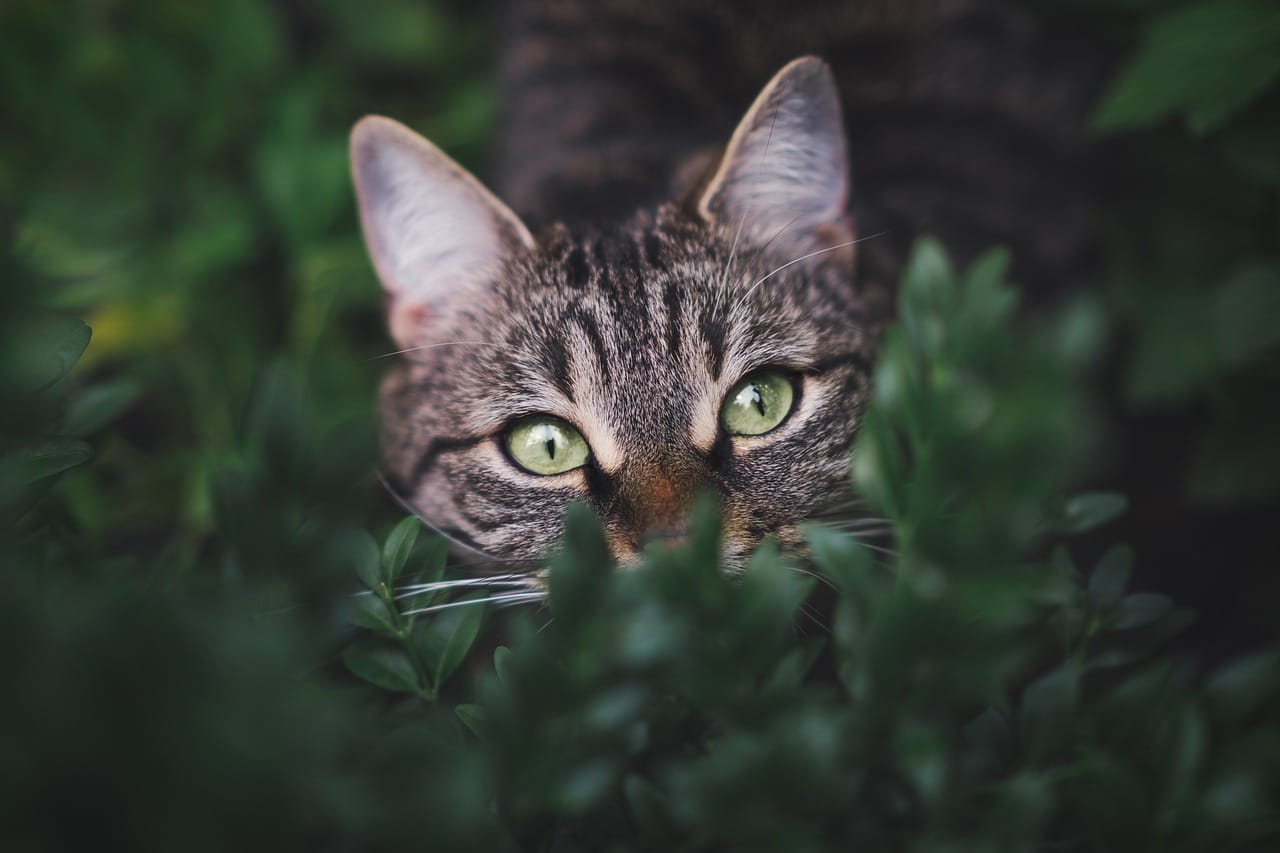Can Kittens Have Catnip? Discover the truth about catnip for kittens & kitten catnip safety. Learn the potential benefits & risks – get expert advice now! #catnip #kittens #cats
Can Kittens Have Catnip? A Comprehensive Guide to Kitten Catnip Safety
The adorable antics of cats reacting to catnip are a common sight, leading many new kitten owners to wonder: Can kittens have catnip? The short answer is: it’s complicated. While generally considered safe, there are factors to consider regarding catnip for kittens and ensuring their safety. This comprehensive guide will delve into the nuances of introducing catnip to your little feline friend, addressing your concerns about kitten catnip safety.
Understanding Catnip and its Effects
Catnip (Nepeta cataria) is a herb from the mint family. Its active ingredient, nepetalactone, affects the feline olfactory system, triggering a playful and often euphoric response in many cats. This reaction isn’t universal; some cats are completely unaffected, while others exhibit a range of behaviors from rolling and rubbing to chasing and pouncing. The effects are temporary, usually lasting only 5-15 minutes. It’s important to remember that catnip doesn’t cause addiction or harm – it simply triggers a natural response.
Can Kittens Have Catnip? The Age Factor
This is where things get a little tricky. While catnip itself isn’t inherently harmful to kittens, it’s generally recommended to wait until they are at least three to six months old before introducing it. Younger kittens may not yet have developed the sensitivity to nepetalactone, and the reaction might be unpredictable. Furthermore, very young kittens are still learning about their environment and navigating their senses. Introducing catnip too early might overwhelm them and cause unnecessary stress. If you’re unsure when your kitten is ready to transition to full cathood, check out this helpful guide on when kittens become cats.
Catnip for Kittens: A Gradual Introduction
Even when your kitten reaches the appropriate age, introducing catnip should be done gradually. Start with a small amount of dried catnip, letting your kitten sniff and explore it at their own pace. Observe their reaction carefully. If they show no interest, don’t push it. Some kittens simply don’t react to catnip, and that’s perfectly fine. If they show a positive response, you can gradually increase the amount of catnip offered over time.
Kitten Catnip Safety: Potential Risks and Precautions
While catnip is generally safe, there are some potential risks to be aware of. Kittens, especially those who are prone to biting, may accidentally ingest some catnip. In most cases, this is not a cause for concern. However, excessive ingestion can lead to mild gastrointestinal upset. Monitor your kitten for any signs of vomiting, diarrhea, or unusual behavior after exposure to catnip. If you notice any concerning symptoms, contact your veterinarian immediately. If you’re experiencing issues with a biting kitten, be sure to check out this helpful guide on how to get a kitten to stop biting.
Alternatives to Catnip for Kittens
If you’re hesitant about introducing catnip to your kitten or if your kitten doesn’t react to it, there are other ways to provide enrichment and stimulation. Interactive play sessions with toys, puzzle feeders, and scratching posts can keep your kitten entertained and prevent boredom. Creating a safe and stimulating environment is crucial for a happy and well-adjusted kitten. Learn how to kitten-proof your home effectively.
Addressing Common Concerns about Catnip for Kittens
Many cat owners wonder if catnip can cause addiction or negatively impact a kitten’s behavior. Rest assured, catnip is not addictive. The response is temporary, and the effects wear off quickly. While some kittens may exhibit slightly heightened energy levels after exposure, this is usually harmless and subsides on its own. However, if your kitten displays aggressive or unusual behavior, consult your veterinarian. Sometimes, seemingly aggressive behavior can stem from other underlying issues, such as feeling threatened. Understanding feline communication is key; learn more about why cats might hiss at kittens here.
Choosing Safe Catnip Products for Kittens
When purchasing catnip for your kitten, opt for organic and pesticide-free options whenever possible. Look for products specifically labeled as safe for kittens. Avoid catnip sprays or oils, as these can be more easily ingested and cause potential issues. Stick to dried catnip leaves or toys filled with dried catnip. Always supervise your kitten when they are interacting with catnip.
Organic Catnip vs. Conventional Catnip: A Comparative Look
The quality of catnip can influence its potency and your kitten’s reaction. Organic catnip, grown without pesticides and herbicides, is generally considered safer for your kitten, as it eliminates the risk of exposure to harmful chemicals. It’s worth paying a slightly higher price for the assurance of quality and safety. You can usually find certified organic catnip at pet stores or online retailers.
Monitoring Your Kitten’s Reaction to Catnip
Careful observation is key to ensuring your kitten’s safety. After introducing catnip, monitor your kitten for any adverse reactions, such as excessive drooling, vomiting, diarrhea, or unusual lethargy. If you notice any of these symptoms, remove the catnip immediately and consult your veterinarian.
Long-Term Effects of Catnip on Kittens
There’s no evidence to suggest that regular exposure to catnip in moderation has any long-term negative effects on healthy kittens. However, moderation is key. Don’t overexpose your kitten to catnip, as this can potentially lead to tolerance or decreased responsiveness over time. Consider offering catnip only occasionally as a special treat.
Frequently Asked Questions (FAQs)
Q: At what age can I give my kitten catnip?
A: It’s generally recommended to wait until your kitten is at least 3-6 months old before introducing catnip.
Q: How much catnip should I give my kitten?
A: Start with a small amount and observe your kitten’s reaction. Increase gradually if tolerated.
Q: What should I do if my kitten has an adverse reaction to catnip?
A: Remove the catnip immediately and consult your veterinarian.
Q: Is catnip addictive?
A: No, catnip is not addictive.
Q: My kitten doesn’t react to catnip. Is this normal?
A: Yes, some cats don’t react to catnip. It’s a genetic trait.
Further Resources
For more in-depth information on cat behavior and health, we recommend checking out these resources:
International Cat Care Catnip Information
Can Kittens Have Catnip? Share Your Experiences!
We hope this comprehensive guide has answered your questions about can kittens have catnip, catnip for kittens, and kitten catnip safety. Have you introduced catnip to your kitten? Share your experiences and tips in the comments below! Let’s help each other create happy and healthy feline companions! What are your favorite ways to play with your kitten? Did you see a surprising reaction to catnip? Let’s hear your stories!

- Can Kittens Have Catnip?
- Yes, kittens can have catnip, but it’s important to introduce it gradually. Many kittens don’t react to catnip until they are around 3-6 months old. Even then, some kittens may never show a reaction. Focus on Kitten Catnip Safety and start with small amounts.
- At what age can kittens have catnip?
- While there’s no specific age, most kittens don’t react to catnip until they are 3-6 months old. Introducing Catnip for Kittens before this age is generally unnecessary and may not have any effect.
- Is catnip safe for kittens?
- Catnip itself is generally considered safe for kittens, but moderation is key. Kitten Catnip Safety involves monitoring your kitten for any adverse reactions like vomiting or diarrhea. Too much catnip can cause upset stomachs.
- How much catnip should I give my kitten?
- Start with a very small amount of catnip. Observe your kitten’s reaction. If they seem to enjoy it, you can gradually increase the amount, but always keep it small. Remember Kitten Catnip Safety is paramount.
- What are the signs of a catnip reaction in a kitten?
- Reactions vary. Some kittens become playful and energetic, others become drowsy and cuddly. Some show no reaction at all. If you see vomiting, diarrhea, or unusual behavior, discontinue use and consult a vet.
- What form of catnip is best for kittens?
- Dried catnip is generally preferred for kittens. Avoid catnip sprays or oils as they can be harder to control the dosage. Small quantities of dried catnip are best for monitoring Catnip for Kittens effects.
- My kitten doesn’t react to catnip. Is this normal?
- Yes, it’s perfectly normal. Not all cats, even adult cats, react to catnip. The reaction is genetic.
- Can catnip be harmful to kittens?
- While generally safe, excessive catnip can cause digestive upset. Always practice Kitten Catnip Safety by offering small amounts and observing your kitten closely.
- Where can I buy catnip for my kitten?
- Pet stores, online retailers, and even some grocery stores carry catnip. Look for organic, pesticide-free catnip for the safest option for your kitten.
- My kitten ate a lot of catnip. Should I be worried?
- If your kitten consumed a large amount of catnip and shows signs of distress like vomiting or diarrhea, contact your veterinarian immediately. Kitten Catnip Safety includes knowing when to seek professional help.

Can Kittens Have Catnip? A Guide for New Owners
Bringing a new kitten home is exciting! But with all the joy comes many questions, especially regarding their health and wellbeing. One common query revolves around catnip: Can kittens have catnip? The short answer is yes, but with some important caveats. While generally safe, introducing catnip to your kitten requires a thoughtful approach. This is because kittens are still developing and their reactions might differ from adult cats. Before introducing catnip, you should understand the potential benefits and risks.
Many people wonder about the appropriate age to introduce catnip. While there’s no strict age limit, most experts agree that waiting until your kitten is at least 6 months old is a good idea. This allows for their digestive system and overall development to mature. If you’re unsure when your kitten transitions from kittenhood to adulthood, you might find this helpful article: When Do Kittens Become Cats? This will give you a clearer idea of your kitten’s developmental stage.
The effects of catnip vary between cats and even within the same cat on different occasions. Some kittens might experience no reaction at all, while others might exhibit playful behavior, rolling around, or even becoming a bit drowsy. It’s important to observe your kitten closely after their first exposure to ensure there are no adverse reactions such as vomiting or diarrhea. If you notice anything unusual, discontinue use and consult your veterinarian.
Catnip should be introduced gradually. Start with a small amount and see how your kitten reacts. If your kitten seems overly stimulated or agitated, it’s best to reduce the amount or frequency of exposure. Remember, catnip is a recreational substance, not a necessary part of a healthy diet. If your kitten is exhibiting excessive biting, exploring resources on how to manage this behavior can be helpful. You might find the article on how to get your kitten to stop biting beneficial.
Furthermore, it’s crucial to ensure your kitten is in a safe and kitten-proofed environment before introducing catnip. This will prevent any accidents or injuries that could occur while your kitten is experiencing the effects of the catnip. Learn how to properly kitten-proof your home for maximum safety.
Finally, if you’re concerned about your kitten’s reaction to catnip or any other unusual behavior, such as hissing, it’s always best to consult your veterinarian. You can find more information on feline communication in this resource about why cats hiss at kittens. Early intervention is crucial for addressing any potential health issues. And remember, you can find more information on kitten-specific catnip usage on can a kitten have catnip.
In summary, while catnip can be a fun and enriching experience for your kitten, moderation and careful observation are key. Always prioritize your kitten’s health and well-being. If you have any doubts, consult your veterinarian.
Can Kittens Have Catnip, Catnip for Kittens, Kitten Catnip Safety